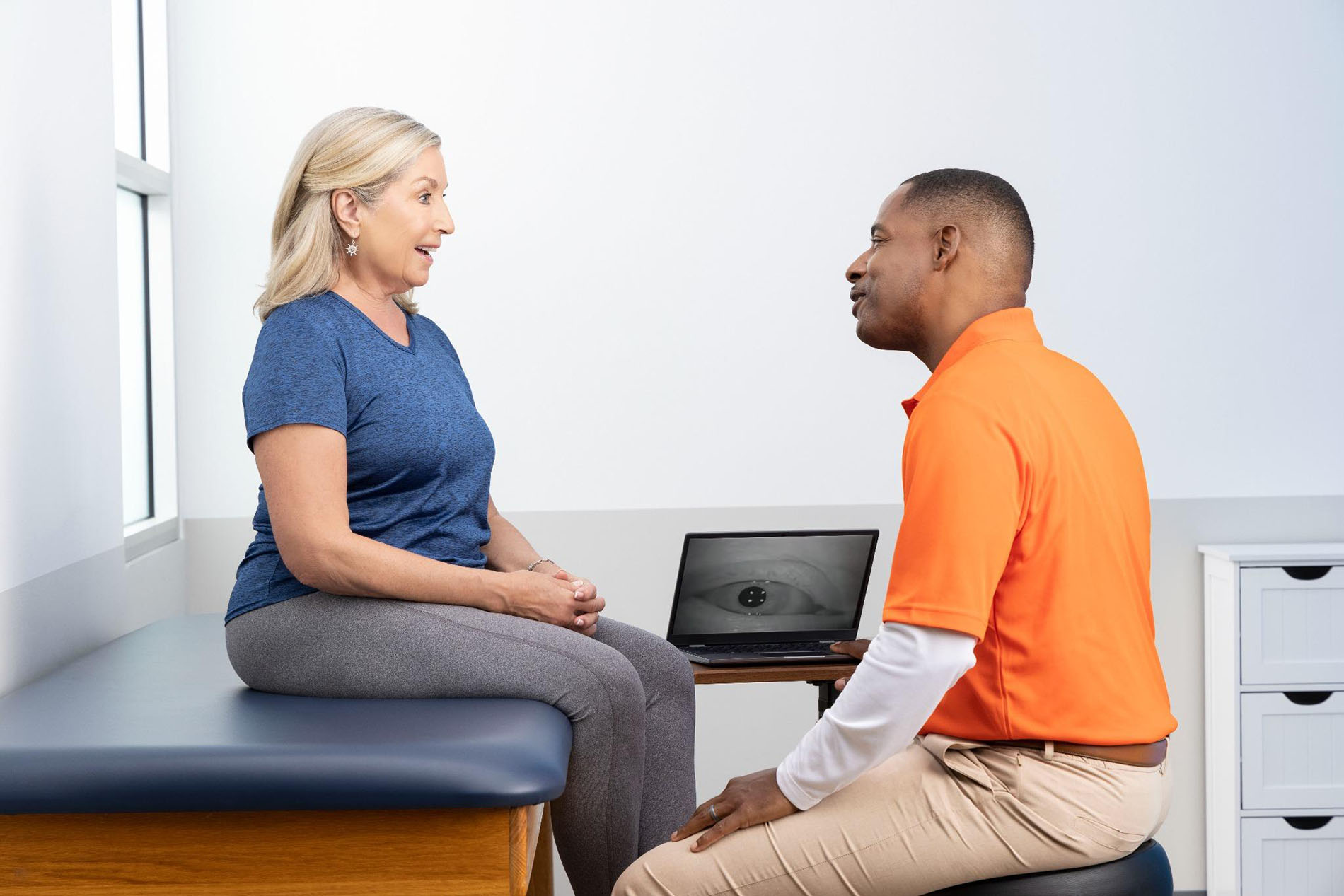Parkinson's Rehabilitation
Transformative Parkinson’s Therapy in Coral Springs – Expert Care at FYZICAL
Understanding Parkinson’s Disease and Its Functional Impact
Parkinson’s disease (PD) is a chronic, progressive neurological disorder that primarily affects motor control. As the disease progresses, dopamine-producing neurons in the brain’s substantia nigra deteriorate, leading to a host of movement-related and non-motor symptoms. These symptoms include tremors, muscle rigidity, bradykinesia (slowness of movement), and postural instability.
Beyond these well-known challenges, Parkinson’s can also result in fatigue, speech changes, facial masking, sleep disturbances, and cognitive decline.
The Role of Physical Therapy in Managing Parkinson’s Disease
While medications like Levodopa are vital for managing symptoms of Parkinson’s disease, physical therapy is equally important for maintaining long-term mobility, posture, and independence. At FYZICAL Therapy & Balance Center Coral Springs, we provide personalized, evidence-based care tailored to each individual’s stage of Parkinson’s and their unique needs.
Our therapy programs focus on:
- Enhancing balance and coordination
- Boosting mobility and walking confidence
- Decreasing rigidity and stiffness
- Strengthening muscles weakened by disuse or tremors
- Promoting independence in everyday activities
Our Multidisciplinary Parkinson’s Therapy Model
Initial Comprehensive Evaluation
Each therapy journey begins with a detailed assessment:
- Postural analysis
- Gait assessment with and without external cues
- Balance and fall-risk testing
- Functional strength evaluation
- Flexibility and joint mobility tests
- Parkinson’s-specific motor scale evaluations (e.g., UPDRS)
These insights allow us to build a customized therapy plan that evolves with patient needs and disease progression.
Personalized Treatment Planning
Therapy plans include:
- Frequency and intensity recommendations
- Home-based and in-clinic exercises
- Education on daily symptom management
- Caregiver guidance and family involvement when applicable
Key Components of Parkinson’s Physical Therapy at FYZICAL Coral Springs
1. Balance and Posture Training
Parkinson’s causes postural instability, contributing to a high fall risk. We work on:
- Static balance drills (e.g., tandem stance, eyes-closed tasks)
- Dynamic exercises (e.g., stepping strategies, obstacle navigation)
- Posture retraining for upright alignment and center-of-gravity control
2. Gait Re-Education
Patients often exhibit a shuffling gait, stooped posture, and reduced arm swing. Our approach:
- Emphasizes stride length, cadence, and foot clearance
- Uses visual and auditory cues (lines on floor, metronome, music) to normalize walking patterns
- Applies dual-tasking drills to improve cognitive-motor coordination (e.g., walking while counting)
3. Strength Training
Muscle weakness accelerates mobility loss:
- Targeted resistance exercises for legs, trunk, and postural muscles
- Functional strength tasks (e.g., sit-to-stand, stair climbing)
- Isometric and dynamic routines to reduce rigidity and improve control
4. Flexibility and Mobility Work
Stretching tight muscles relieves pain and enhances movement:
- Chest, hamstring, calf, and hip flexor stretches
- Trunk rotation and spinal mobility drills
- Active-assisted movement routines for frozen joints
5. Cueing and Sensory Integration
Freezing of gait (FOG) can be debilitating:
- External cues help override faulty internal motor programs
- Use of auditory (beeps), tactile (vibration), and visual prompts
- Training patients in self-generated cues for challenging situations
6. Functional Task Training
Patients practice daily movements such as:
- Reaching and grasping
- Bed mobility and rolling
- Turning while walking
- Multistep tasks (e.g., cooking or transferring safely)
7. Fall Prevention Education
- Instruction on fall scenarios and recovery methods
- Adaptive strategies for safely navigating stairs, curbs, and uneven terrain
- Training on assistive devices (canes, walkers, grab bars)
How FYZICAL Makes a Difference
What sets FYZICAL Coral Springs apart:
- Licensed physical therapists with advanced neuromuscular training
- Access to balance-specific equipment (e.g., safety harnesses, virtual balance trainers)
- Use of LSVT BIG principles where appropriate
- Ongoing assessments and outcome tracking
- Coordination with neurologists and movement disorder specialists

Beyond Exercise: Empowerment Through Education
Education empowers patients to self-manage symptoms. We offer:
- Energy conservation techniques
- Home safety audits and recommendations
- Strategies for medication-timing and activity planning
- Daily journaling tools for tracking symptoms and therapy progress
We also involve caregivers and family members, ensuring they understand disease progression and safe assistance techniques.
Who Should Begin Parkinson’s Therapy?
This program is ideal for individuals who:
- Have been recently diagnosed with PD
- Are experiencing balance/gait disturbances
- Want to preserve independence
- Are recovering from hospitalization, surgery, or injury
- Have cognitive or mobility decline and need structured support
Expected Results from Therapy
With consistent sessions, patients may experience:
- Reduced fall frequency
- Faster and safer walking
- Less reliance on assistive devices
- Improved posture, speech clarity, and fine motor skills
- Stronger emotional well-being and confidence
Conclusion: Take Control of Parkinson’s with FYZICAL
Parkinson’s may change the way you move, but it doesn’t have to define your life. At FYZICAL Therapy & Balance Center Coral Springs, we deliver expert, compassionate therapy that restores confidence, stability, and function. Whether you’re newly diagnosed or navigating advanced stages, our team is here to support you every step of the way.
Frequently Asked Questions
1. How often should I attend therapy for Parkinson’s?
Most clients benefit from 2–3 sessions per week initially. As they progress, frequency may be reduced to a maintenance schedule.
2. Is this therapy covered by insurance?
Yes, Parkinson’s therapy is often covered under physical therapy benefits. Our office helps you verify eligibility and manage paperwork.
3. Can I still benefit if I’ve had Parkinson’s for several years?
Absolutely. While earlier intervention is ideal, patients at any stage can improve strength, confidence, and safety.
4. Will therapy make me less reliant on a walker or cane?
In many cases, yes. We focus on reducing fall risk and strengthening walking ability, which may allow reduced dependence on assistive devices.
5. What makes FYZICAL different from standard PT clinics?
We offer Parkinson’s-specific training tools, balance safety systems, and one-on-one care tailored to neurological needs.
6. Can family members attend sessions?
Yes, we encourage involvement! Caregivers often gain valuable insights on assisting safely and understanding disease stages.
